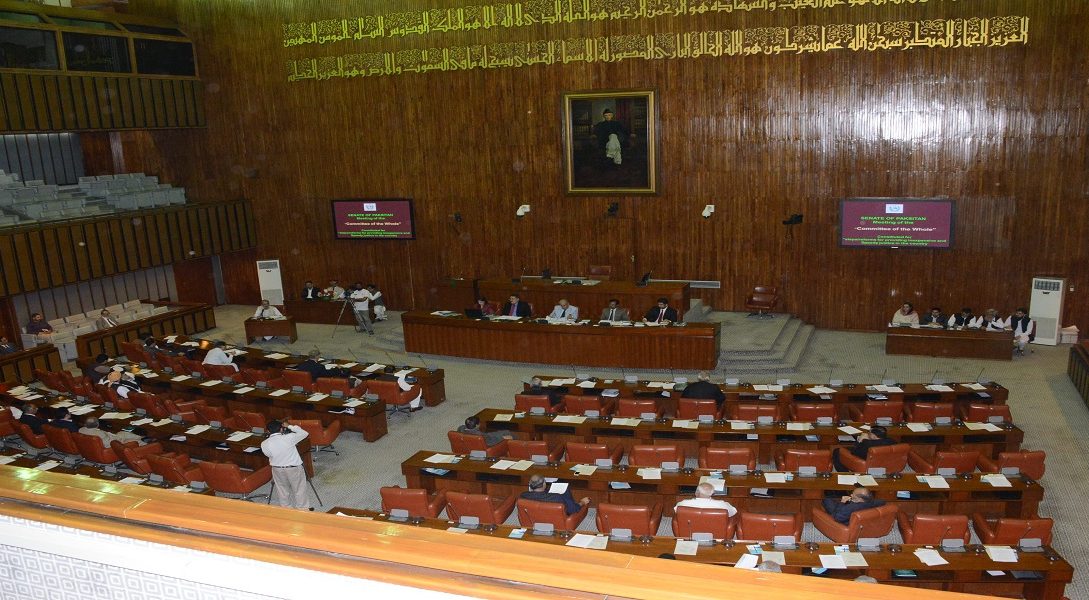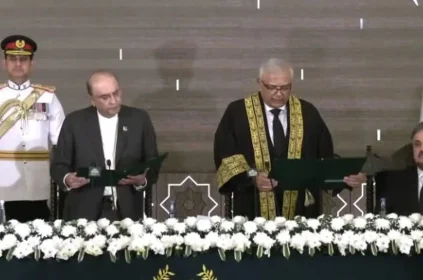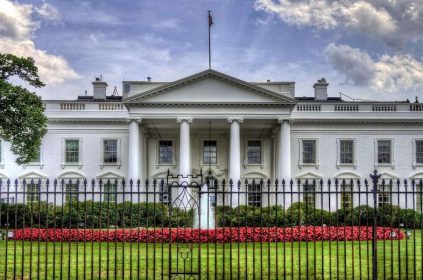NATIONAL NEWS
ISLAMABAD: The federal government on Saturday placed the 27th Constitutional Amendment Bill before the Senate shortly after receiving approval from the cabinet. Senate Chairman Yousuf Raza Gillani sent the draft to the Standing Committee on Law and Justice for an in-depth examination.
Law Minister Azam Nazeer Tarar presented the proposed amendment during the session. He requested that routine business be paused so the bill could be formally taken up, a proposal the chair accepted. Tarar noted that the legislation would now be scrutinised by a joint committee of lawmakers from both houses of Parliament. He stressed that the government did not plan to rush a vote and would seek opposition feedback during the review phase.
Chairman Gillani called on opposition senators to participate fully in the committee’s deliberations and confirmed the bill’s referral to the Law and Justice Committee. The cabinet had earlier endorsed the draft in a virtual meeting chaired by Prime Minister Shehbaz Sharif from Azerbaijan.
The amendmentindicates that the bill calls for extensive changes to the country’s judicial and defence framework. Key points include:
Creation of a Federal Constitutional Court (FCC)
A new court would be established to interpret the Constitution and decide constitutional questions.
Powers currently held by the Supreme Court—such as suo motu under Article 184—would shift to the FCC.
The Supreme Court would focus on appellate and general legal matters once these powers are transferred.
The FCC would have a Chief Justice and an equal number of judges from each province, with the Chief Justice appointed for a three-year term.
The authority of the current Chief Justice of Pakistan would be curtailed.
FCC judgments would be binding on all courts nationwide.
Changes to the defence structure
The office of Chairman Joint Chiefs of Staff Committee would be abolished.
A new designation, “Chief of Defence Forces” (CDF), would replace it, with the position tied to the Army Chief.
The rank of Field Marshal would become a lifetime title.
Revisions to judicial appointments
The bill proposes increasing the role of the Prime Minister and President in the judicial appointment process.
Both the Chief Justice of the Supreme Court and the future Chief Justice of the FCC would sit on the Judicial Commission.
Parliament would decide the total number of judges serving on the FCC.
The amendment seeks modifications to Articles 42, 63A, and 175–191, effectively reducing the Supreme Court’s authority and redistributing powers between the executive and the judiciary.
Legal analysts are describing the 27th Amendment as a far-reaching overhaul of Pakistan’s constitutional setup. Opposition parties, however, have voiced strong objections, arguing that the changes could compromise judicial independence. The proposal to establish a separate constitutional court has already set off intense political and legal debate, with observers warning of significant long-term consequences for the country’s governance model.
















